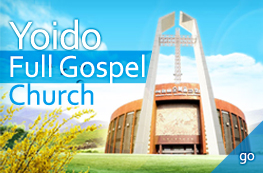The Korean Association for Christian Ethics (KACE) held its regular annual symposium on April 11 at Methodist Theological University on Doknimmun-ro, Seodaemun-gu, Seoul. This year’s theme was “Commemorating the 70th Anniversary of Dietrich Bonhoeffer’s Martyrdom: Theology and Ethics Following the Sewol Ferry Disaster.” The presenters agreed that the Korean churches need to feel the pains of others as our own, and take responsible actions.
In his paper “A brief review on the development of Bonhoeffer’s ethical thinking,” Rev. Kang An-il (Seongrak Holiness Church) analyzed the current circumstances of the Korean church through the lens of Bonhoeffer’s ethical thought. He said, “This is the time for the Korean church to grasp the ‘responsibility’ found in Bonhoeffer’s 'Ethics,' his letters from prison. For us today, responsibility means our immediate response to the call of Jesus Christ in society.” He added, “In simpler words, it is our love and responsibility for other people. It is not mere light-hearted sympathizing with the poor and powerless minjung, but making the essence of the church visible specifically as Jesus’ life and image.”
The presentation of Prof. Lee Dong-chun of Presbyterian University and Theological Seminary was titled “A Christian ethical reflection on the attitude of the Korean church towards the pain of others.” He emphasized that the Korean church must realize that its “place” is not in the center, but is marginal. He said, “The responsibility of the church is to feel and identify suffering others as ‘myself.’ Therefore, based on this kind of responsibility, the task left to the church by the Sewol Ferry tragedy is to ponder on how to respond to the authoritarian state.”
Dr. Lee Bong-seok of Methodist Theological University urged that the ministry to the younger generation should change, and from now on reflect the insights from the Sewol Ferry incident. In his presentation “A Christian ethical examination of youth ministry since the Sewol Ferry tragedy, and possible alternatives,” Dr. Lee analyzed, “Young persons in their twenties have been living their days in a state of anxiety and tension due to the endless competition; and now, through the Sewol tragedy, they recognize the fact that the state does not care for them… The Korean church should help them recover from shock, and should take responsibility for making and providing them with a new community of hope.” He advised the church to equip itself with new systems for conversation and discourse with the young generation, who need space where they can talk freely about their daily lives and encourage each other. He said the church must be able to convince the young generation that they can be true human beings made in God’s image, regardless of whether or not they are “successful.”
Dr. Kim Shi-ho of Yonsei University sought future directions for the Korean church in implications drawn from the monasteries of the Middle Ages. He asserted that the Korean church can learn from the monastery movement, which grew out of lay believers’ devotion to God at a time when Christianity was colluding with the Roman government and had fallen into materialism. He explained, “The monasteries in the Middle Ages were gatherings of believers who were eager to learn what Jesus’ teachings meant, and who tried to practice that learning in their lives… Currently the Korean church is not interested in speaking out for justice; instead, it is driving out those who do speak for it, calling them “Satans.” I hope the Korean church can be born again as a true church, by emulating the monastery movement.”
Reporter Jin Samyeol (samuel@kmib.co.kr), with Yeara Ahn-Park (yap@kmib.co.kr)
Click here for the original article in Korean
KACE Symposium on Bonhoeffer: “The church should embrace the anxious young generation”
2015-04-16 15:31


